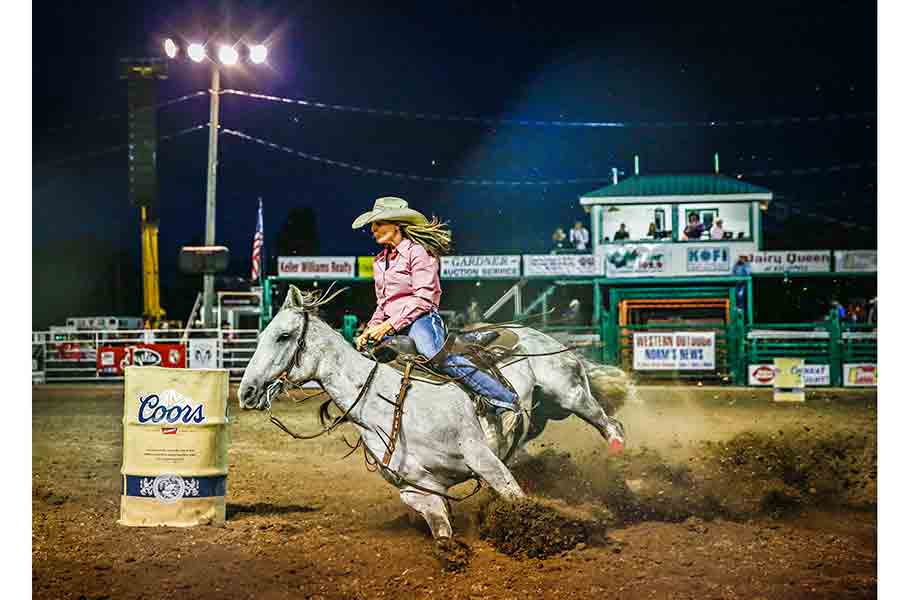While plans for the Northwest Montana Fair and Rodeo continue, they do so without a staple concession: beer.
“It’s just not possible,” said fairgrounds manager Mark Campbell. “I can’t honestly tell the health department ‘yes, we’ll social distance in the beer garden.’ And it could drag down other components of the fair.”
Fair staff is continuously meeting with members of the Flathead City-County Health Department (FCCHD) to provide updated safety plans for the fair, and each separate event has an individual plan.
Tamilee St. James Robinson, the FCCHD health officer, said the fair has been working hard to come up with solutions to all concerns voiced by the health department. The county health officer has the authority to cancel events over public health concerns.
“Ultimately the fair board will make the decision whether they can enforce their plans,” said Robinson.
When the health department reviews safety plans, it ensure plans align with the directives given out by the governor’s office. The latest directive requiring masks to be worn in large gatherings where social distancing cannot be guaranteed went a long way to assuage worries by the health department and the fair board.
“The directive has simplified things for us,” said Campbell. “Unless you meet an exemption, we’re not asking, we’re telling you: you have to have a mask on fair grounds.”
At the weekly fair board meeting on July 23, Campbell said the board’s planning method of starting with a more traditional fair, and then reducing it as concerns arise, is better than an outright cancellation. Most fairs in the state have either been cancelled or greatly reduced.
“We will take parts off based on new science, new information and changes in the community,” said Campbell.
In the latest reduction to the scope of the fair, it was decided on July 22 not to hold the fair parade.
The parade is a Friday staple during fair week, when the route winds through downtown Kalispell. The fair and the Kalispell Chamber of Commerce jointly organize the parade, which is the largest of the year.
“While the decision was not made lightly, the Northwest Montana Fair fully understands the challenges posed in trying to organize the parade this year,” Campbell said.
Both organizations said it would be impossible to execute the event in a socially distanced manner. Typically the parade draws spectators standing shoulder to shoulder down the length of Main Street.
“The fair parade is a great event that showcases the hard work of our local 4-H and FFA students along with our many local businesses and organizations in town that support the ag community,” Kalispell Chamber president Joe Unterreiner stated in a press release.
“While we can’t have a parade this year because of COVID-19, we hope everyone will support this year’s students virtually or in person during the annual Market Livestock Sale on the Saturday of the fair.”
So far this year has seen the largest participation from FFA and 4-H students in fair history, which the fair board says is a key reason they continue to push for a fair in some capacity.
The fair board and site staff is increasing safety measures around the fairgrounds. Sixty permanent sanitizing stations have been installed and an additional 10 are portable and can be relocated to high-volume areas. Restroom and table sanitization crews have been doubled in size to keep on top of cleanliness.
The two biggest events of the fair, the Chris Janson concert and the rodeo, are moving forward with limited tickets. Full participation is expected for the rodeo, as competitors from around Montana and surrounding states are seeking competition opportunities. The Northwest Montana Rodeo is one of the few still taking place this summer.
One area of concern that is still being discussed with the health department is how to manage the party pit at the concert. The party pit, which is the closest area to the stage, is currently capped at 500 tickets, of which 400 have been sold. The most recent plan is to have spaced out chairs for concert attendees, but Campbell acknowledged that at a concert, there’s still concern about enforcement.
“This will still be a full blown fair,” Campbell said. “A full blown fair, to an extent, with modifications.”
